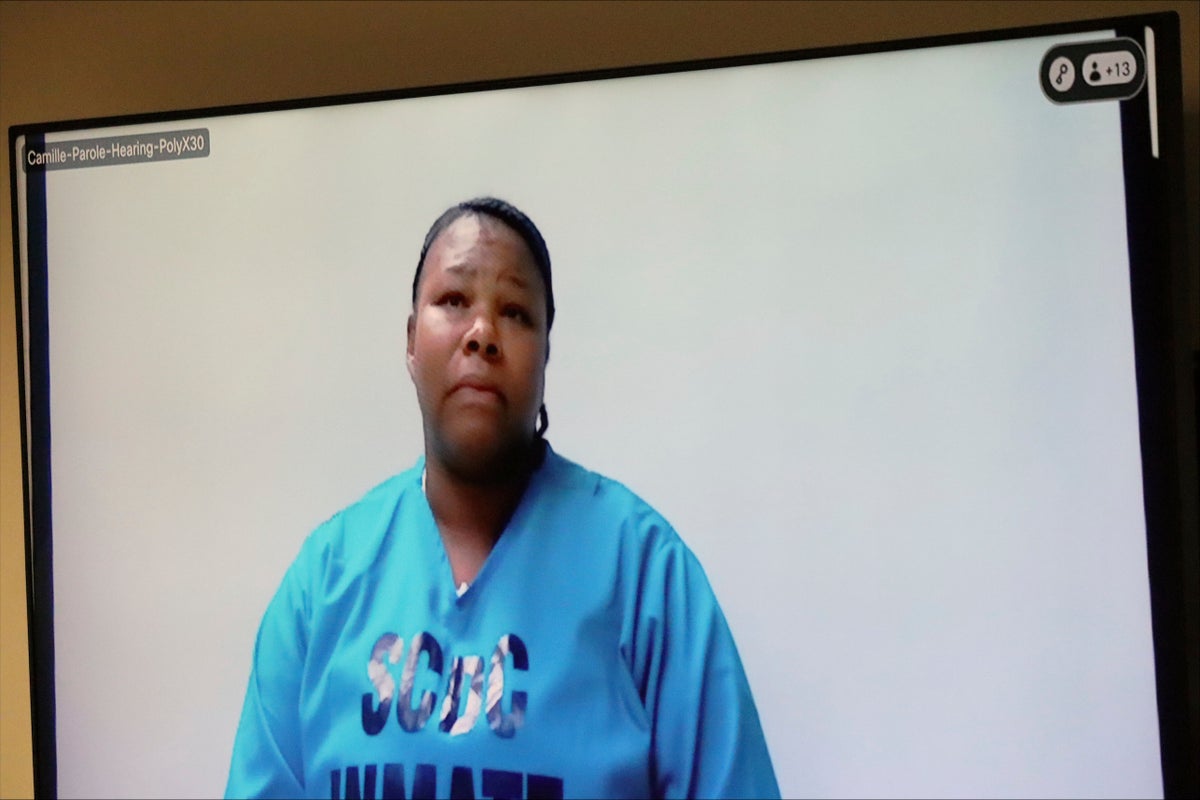
A South Carolina woman who killed her abuser with a kitchen knife six years ago will continue serving her 15-year prison term after the state parole board denied her early release Wednesday.
Tiffany Jenae Carroll, 36, failed to get the two-thirds vote necessary for parole. Despite a 3-2 decision supporting her bid to rejoin society, efforts again fell short because the bar is higher for certain violent crimes. One member abstained from voting and another was absent.
The outcome brought shock and dismay from advocates who have exhausted seemingly every avenue at their disposal since Carroll's January 2020 sentencing. A state lawmaker tried to secure a pardon but the South Carolina Department of Probation, Parole and Pardon Services deemed her ineligible because she is already up for parole. The state board unanimously rejected her first shot at parole last fall, according to The Post and Courier.
Carroll pleaded guilty but mentally ill to voluntary manslaughter for the death of William Jamaal Johnson. The sentencing judge determined that Carroll had been the victim of domestic violence during her relationship with the man she stabbed in the chest during an argument at a Greenwood residence.
Authorities responded to their house eight times between May 2016 and the fatal stabbing, The Post and Courier reported.
Still, attorney Travis Moore said Wednesday, officers responding to the crime scene on Sept. 18, 2017, found Carroll attempting to save the life of the abusive partner she had just stabbed. Moore told the board that Carroll had no prior history of violence and that Johnson had been the primary aggressor in the argument preceding his death.
Carroll suffered psychological trauma caused by domestic abuse, Moore added. Known as battered woman syndrome, the condition can lead to feelings of helplessness or fear, and escalated violence.
The roughly 30-minute hearing included several questions about what her life would look like outside prison if the board granted her parole.
Carrol said she planned to live with her uncle's family and hoped to find work to provide for her five children, who would not immediately join her.
When asked how she could ensure that a serious offense won’t happen again during a conflict, Carroll said she has developed coping skills during her incarceration. She said she hopes to help others like her and plans to continue the counseling and Bible studies she began behind bars.
She also repeated her desire to seek forgiveness and support from the family of the man she killed.
“I know what I did was wrong. I’m still struggling to forgive myself,” Carroll, appearing by video feed, told the board Wednesday. “I pray that God forgives me, and I pray that his family will one day forgive me.”
Advocates have argued the state women’s prison is unfit for a mother who should instead be home with her children. She has no disciplinary sanctions, has earned several work certificates and has acquired credits as a custodian and landscaper, according to the South Carolina Department of Corrections’ website — a point emphasized by Moore on Wednesday.
The strong backing of the Greenwood community would help Carroll thrive, according to supporters. Republican State Rep. John McCravy, who has represented the area since his 2016 election, told the board Wednesday that she has two job offers pending — including one that he extended personally. He’d even be willing to let her live with his family if her current plans fell apart, McCravy added.
“I have that much confidence in her that she will make it,” he told the board while dialing into the hearing. “She’s got all the support she needs.”
No outside observers spoke against her early release Wednesday. Frank Wideman, one of the two members who voted against granting parole, mentioned the nature of the crime. He said during a brief discussion among the board that he took issue with the violence and cited a local police chief's opposition to parole.
The case could spark legal changes in South Carolina. Moore, who is also a Republican state representative, told reporters that the “temporary setback” is evidence that “things need to be changed.” He wants more legal protections for people like Carroll who do not meet requirements necessary for self-defense at trial. McCravy and Moore hope to introduce legislation next year that would account for people with battered women syndrome in these types of scenarios.







